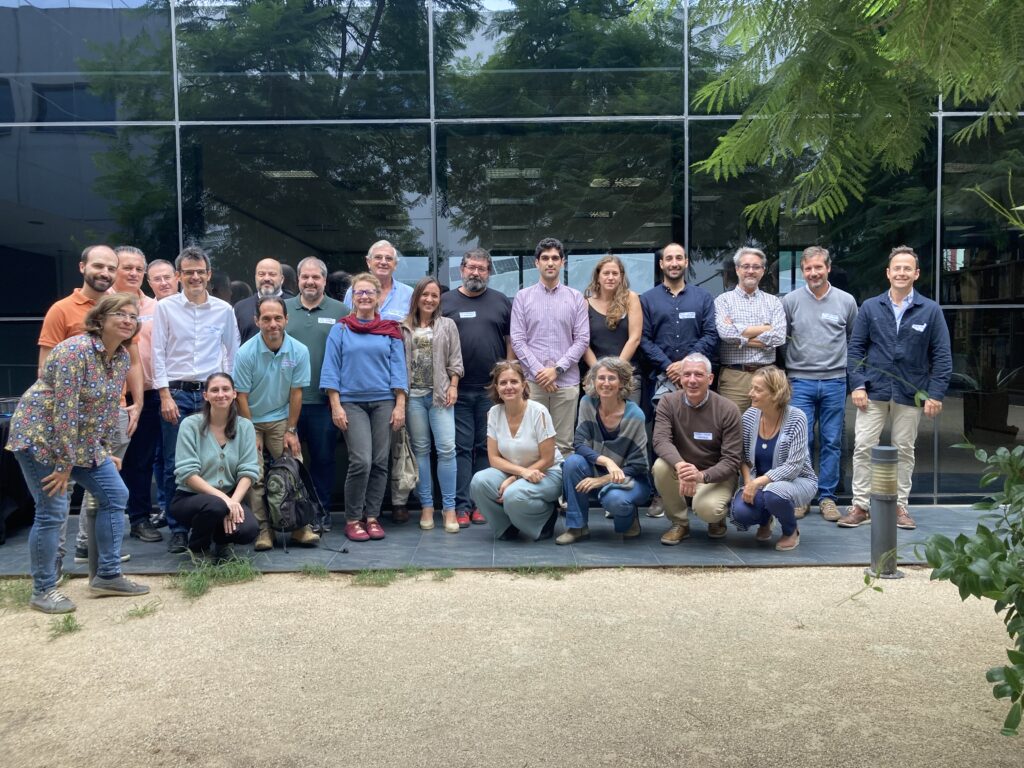The Andalucía-Los Pedroches Living Lab holds its first multi-stakeholder platform meeting
On October 25th the Andalucía-Los Pedroches living lab organized its first multi-stakeholder platform (MSP) meeting. Thirty-one participants, representing 18 organizations, gathered at the headquarters of CICAP, in the town of Pozoblanco, Los Pedroches. The workshop successfully achieved an important first step: strengthening the living lab community, generating a common vision and defining its goals.
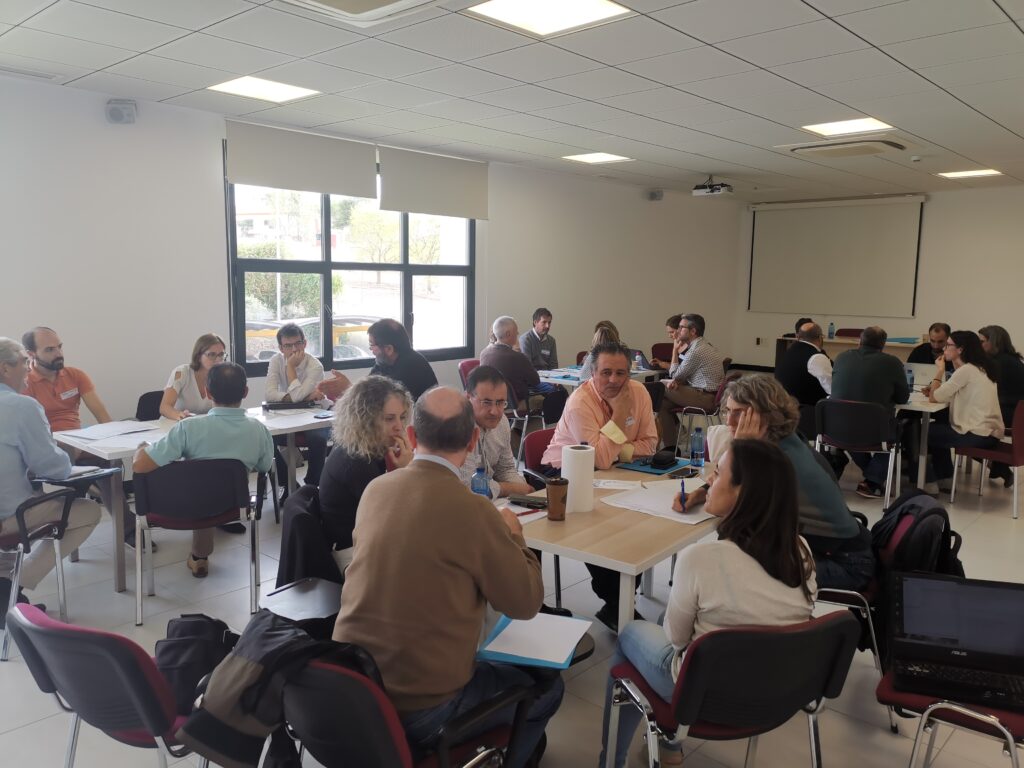
In the first part of the agenda, climate service producers, such as the environmental network of Andalucía, REDIAM, the cattle ranchers cooperative COVAP, the Citizen Drought Observatory, or the Andalucía agrarian innovation and research center, IFAPA, briefly presented the climate services they generate. This was also an opportunity for I-CISK member Lluis Pesquer of CREAF to present advances in the development of downscaled climate projections and predictions for the region.
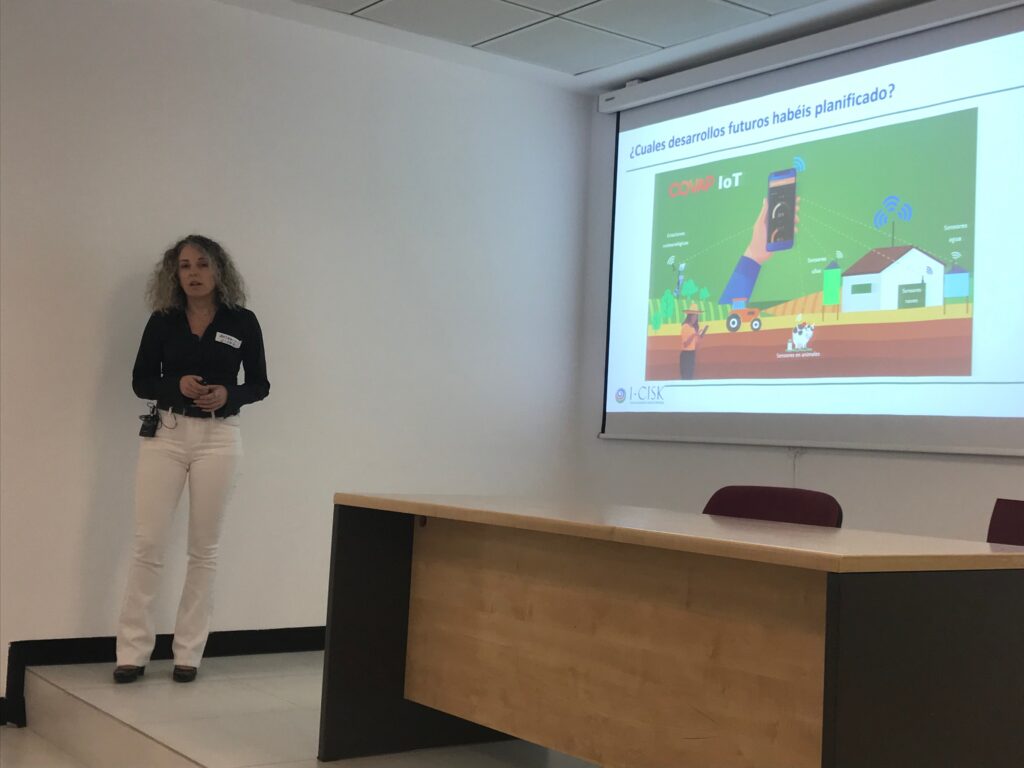
The session revealed that interesting information and research is available to overcome knowledge gaps for managing agriculture, livestock and forest lands in the face of drought and climate change-induced impacts in Los Pedroches. Nevertheless, climate services need to be enhanced and tailored to specific needs, and still significant challenges need to be overcome to improve both predictions and awareness by the general public about the available information.
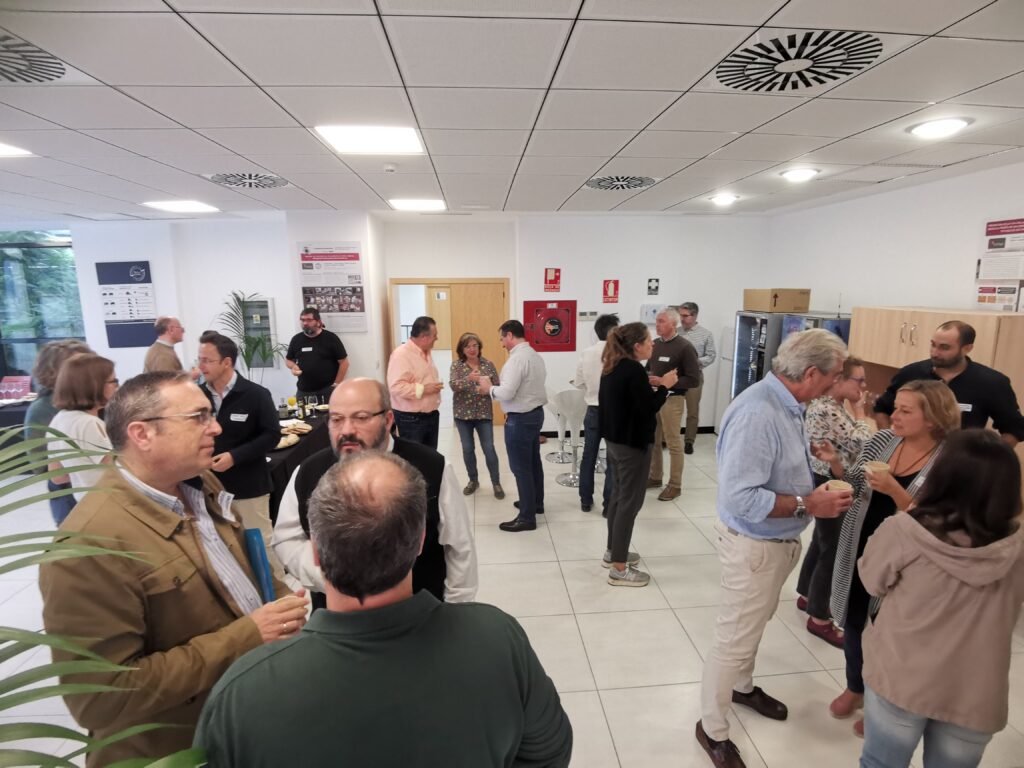
During the coffee break offering delicious local products, participants had the opportunity to further link up, consolidating the newly established relations between MSP members and generating ideas for collaboration in the upcoming months.
The second part of the agenda was organized in a workshop format, inviting participants at first to explore adaptation measures that can be implemented with improved climate services, then to further advance in the characterization of the climate services that I-CISK could deliver.
Participants identified adaptation measures that they currently implement to adapt to drought periods, as well as measures they could implement with access to improved climate services. A plenary session allowed to share main findings, cluster key aspects for each sector and further understand the interlinkages between climate change impacts, adaptation measures and the role of available information.
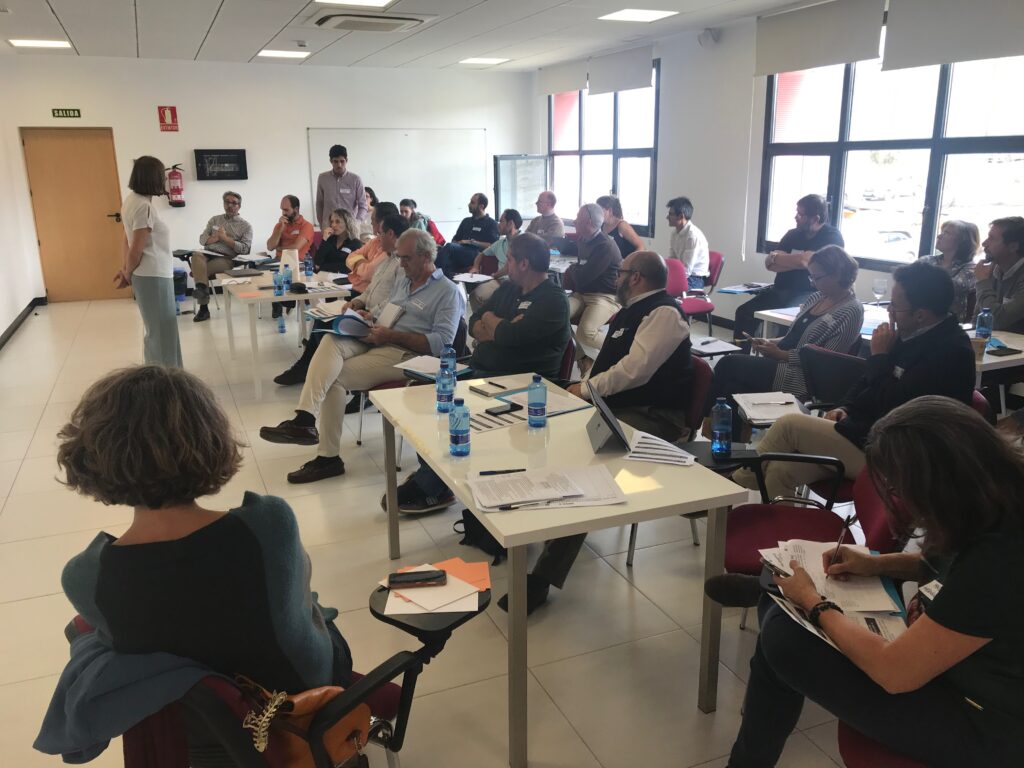
In a second exercise, four discussion tables invited participants to dive into the details of the different climate services proposed for development in the I-CISK living lab. UCM and CREAF team members moderated each table, proposing to validate and integrate aspects related to a) seasonal predictions, b) historical data and projections, c) aspects related to phenology and agronomy, and d) hydrological characterization of the Comarca.
Participants contributed generating fruitful discussions and showed their availability to co-create the climate services by providing information and linking up with the project agenda.
The event was closed indicating all the gathered input will allow to set up tailored interactions with each organization in the upcoming months, and a virtual workshop is foreseen early next year to continue the living lab co-creation process.
